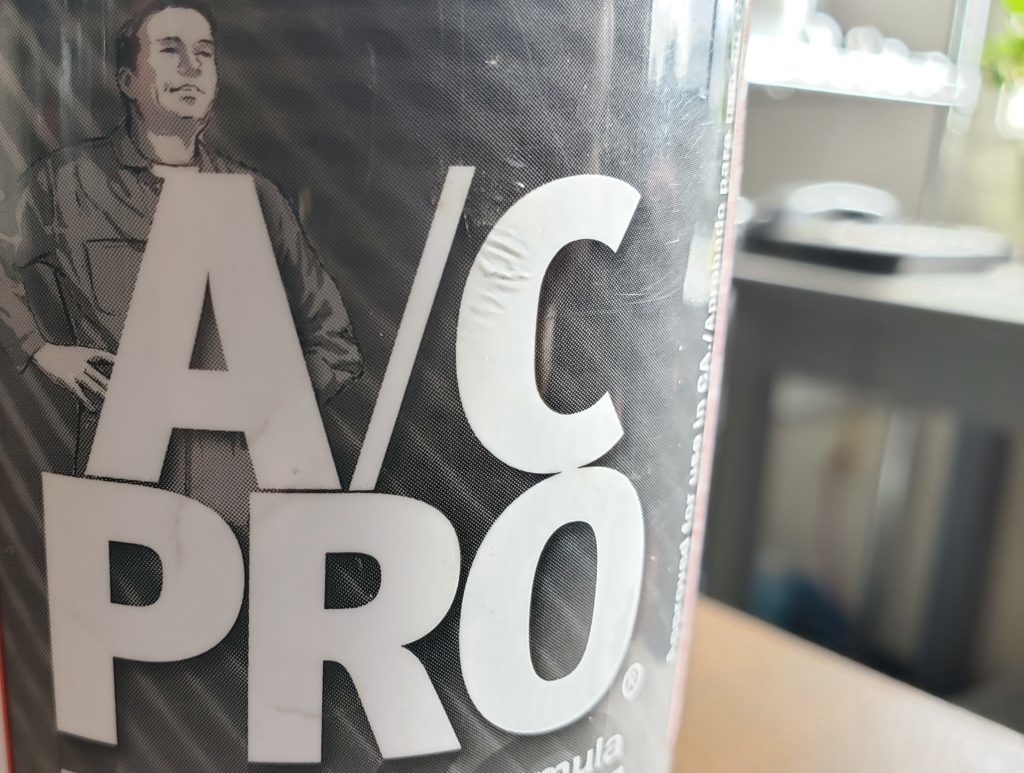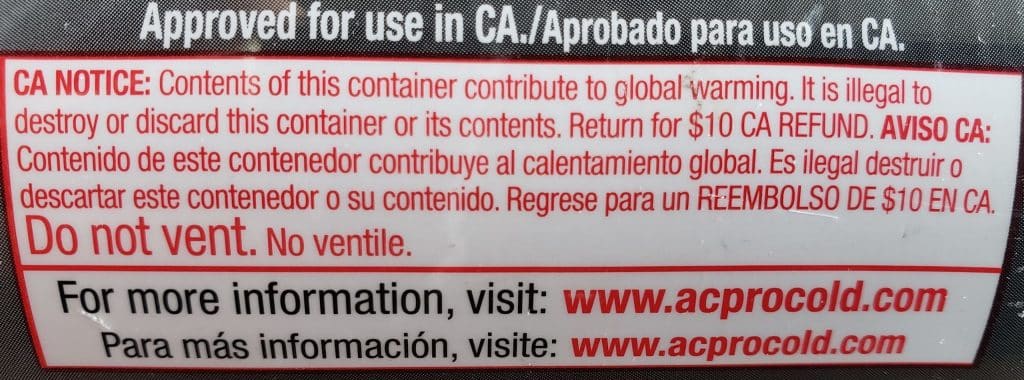
DON’T DO IT YOURSELF. PLEASE!
If you found this post looking for information about how you can service your car’s A/C system by yourself, you’ve come to the wrong place… or maybe not. I’m writing this for two reasons. First to convince people to stop using the DIY A/C service cans from the auto parts store and second in the hope that a legislator or regulator or even a perhaps even some auto parts stores to see this and do something to stop the sale of refrigerant to untrained people.
WHY NOT?
Let’s start with why you as a vehicle owner shouldn’t service your own system. Now, in case you’re thinking that I’m just trying to talk you out of servicing your own system out of love for the environment or love of my own wallet, that’s not it, or at least they aren’t the only reasons.
REASON 1: STOP-LEAK WILL DAMAGE YOUR COMPRESSOR
Almost all DIY A/C can have “stop leak” in them. Why would that be bad? After all, nobody wants to have a leaky A/C system right? As Art often says, “here’s the thing”… Stop leak is a compound that turns into gummy, sticky, goop when it come in contact with the moisture in our atmosphere. That’s how it stops the leak — it leaks out of the hole in the completely dry hermetically sealed A/C system, comes in contact with the moist air outside, and turns into a sticky mess and slows the leak.
Why is this bad? Well, when a competent mechanic services an A/C system, he vacuums the system for 15 to 45 minutes. The low pressure causes water to boil at ambient temperatures and the water is sucked from the system with the vacuum pump. When a weekend warrior uses a DIY can, there is no vacuum pump and there will likely be moisture in the system. “But isn’t the system hermetically sealed? How would moisture get in there?” If the system is empty, there at least a small leak. Refrigerant is leaking out and air is leaking in.
Why is having a sticky gummy substance in the A/C system bad? It causes compressor failure, sticking expansion valves, and clogs the receiver-drier (desiccant and filter assembly). It also clogs the $150 filter in our A/C machine. We once had a compressor fail on the same vehicle 3 times. On the third failure we sent the compressor to Denso with a letter complaining about the quality. They disassembled the compressor and created a cause-of-failure report with pictures. (You can see the report here if you’re interested 471-1630 Analysis report Arts Auto – ). The short story is that there was stop-leak in the system and it ruined multiple compressors.
REASON 2: I SUSPECT YOU DON’T HAVE A VACUUM PUMP, AND YOU NEED ONE
“Hey! I found a DIY can with no stop leak so I’m good to go now!” Nope. There are still issues. You won’t create a $1500 repair when you only needed a $250 service, but the system isn’t likely to perform as well as it should.
There is usually some air in the system when a car comes in for service. It’s not uncommon to find a system with 40 PSI of pressure but no refrigerant at all. Honestly I don’t know how the system get air pressure beyond atmospheric pressure. If you know, please email and let me know.
Anyway, to remove the air you need to pull a vacuum with the A/C machine. If you don’t, the A/C system won’t operate as well as it could. Also, any moisture in the system won’t be removed and moisture in the system can cause expansion valve freezing which can cause the A/C to stop working entirely intermittently.

REASON 3: ENVIRONMENTAL DAMAGE
In order to purchase refrigerant as technicians, we need to provide proof that we are certified to handle the refrigerant or the vendors won’t sell to us. For some strange reason regular people can walk into an auto parts store and buy a can of refrigerant with sealant and a hose to connect it to the car without an A/C machine. It makes no sense, yet that’s the way it is.
Why shouldn’t person without certification be able to buy refrigerant? Because it’s very bad for the atmosphere. Even if the refrigerant purchased is “environmentally friendly”, the refrigerant in the car isn’t. Here’s a call we recently received:
Customer — “How much for a compressor?”
Art’s — “Why do you think you need a compressor?”
Customer — “I connected the can to the car and the gauge said the system was full, so I removed the Schrader valve to empty the system so I could recharge the system and then the A/C still didn’t work”
So a guy without a clue how the A/C system works and no A/C equipment dumped a full system into the atmosphere for no reason at all. Not only does this damage the environment, he risked burning or blinding himself by pulling the valve with a full system. Now he wants to replace an expensive part at random. That’s not a good way to save money!

LOBBYISTS — DESTROYING THE PLANET ONE STUPID AND SELFISH POLICY AT A TIME
Why does the government allow TV commercials enticing people to “save money by fixing their own air conditioning” and allow distributors to sell refrigerant to anyone who wants it? On the other hand, shops with mechanics trained in air conditioning repair can be fined and/or lose their BAR license if they service an A/C system without an RRR station and a refrigerant identifier on site. I’m not against regulation, especially when it comes to things that cause environmental damage, but why a crazy loophole if someone’s fixing their own car?